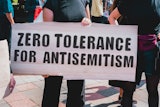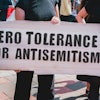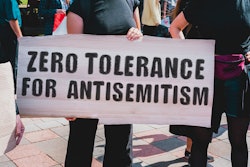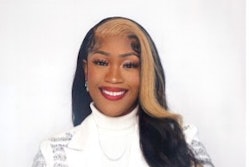WASHINGTON – The Black Power movement is not a vestige of the past, but a living didactical legacy that is as relevant now in the Obama era as it has ever been, said a group of scholars and activists during a two-day symposium dedicated to the impact of the Black Power movement on America.
“On the Sunday morning shows, when everyone wants to pay tribute to the great mobilization and organizing [of the Obama campaign], I sit and say, ‘You know, there was the Jackson campaigns in ‘84 and ‘88 that increased Black voter registration tenfold,” said Donna Brazile, vice chair of the Democratic National Committee Voting Rights Institute. “There was the Shirley Chisholm campaign [in 1972]. There was Fannie Lou Hamer and the Mississippi Democratic Party. We have so much to be grateful for.’”
“I am living proof that there was indeed a Black Power movement,” added Brazile. “I see a direct link between the Black Power movement, the Civil Rights movement and where we are today. I see a connection between those African Americans who stood in those long lines in ’84 and ’88 for Rev. [Jesse] Jackson and those who turned out for President Barack Obama.”
Between 1966 and 1975, a time known as Black Power’s classical period, several key victories emerged in academia for African Americans: the development of African-American studies programs across the nation, the resurgence of Black feminist literature as a viable genre, and a political arena that paved the way for a new class of Black elected officials. All three were discussed by a distinguished group of panelists during the symposium Tuesday held at the
Still much of an enigma to Blacks as well as to Whites, Black Power is often defined as a political movement that emerged out of the Civil Rights movement and allowed for the expression of a new racial consciousness among Blacks in the United States. Much of the history of this era has been characterized by revolutionist iconography: Black Panthers, raised fists, black berets and rifles.
The movement is reviled in some spheres as violent, radical, militant and counterproductive and hailed by others as positive, proactive and responsible for emphasizing the significance of racial pride, cultural heritage and self-reliance.
However, panelists Dr. Gregory Carr, a professor of African-American studies at Howard University; Rhonda Williams, an associate professor of history at Case Western Reserve University; and Brazile painted a picture of a multifaceted movement orchestrated by various constituencies of Black America demanding to be heard after the death of Dr. Martin Luther King Jr. in 1968.
During a workshop session titled “R-E-S-P-E-C-T,” female scholars weighed in on the role that women scholars and activists played in the Black Power movement.
“Where were the women?” was the question posed by Dr. Johnnetta B. Cole, director of the Smithsonian Institution’s National Museum of African Art and former president of Bennett and Spelman colleges, speaking about her early days as a professor of Black studies and anthropology at the University of Massachusetts at Amherst.
“We were two: Ester M.A. Terry [associate chancellor and professor and chair of the Afro-American Studies Department at Amherst] and myself. Those were days when, emotionally, I knew it wasn’t right (that there were not more female voices). Intellectually, it would take me a while to develop an authentic feminist perspective.“
Cole noted that the absence of Black female scholars and their scholarship during the early years of African-American studies diminished the impact of the discipline, which at the time was only telling a patriarchal version of the African-American story.
“That exceptionally, insightful title of a book, All of the Blacks are Men, All of the Women are White, But some of us Are Brave, that kind of scholarship began to bring me to the point where I could see that scholarship had the responsibility to help me understand my multiple identities,” said Cole. “You cannot deal with parts of me if you want to deal with me.”
Black feminists found their voice during the Black Power period: Toni Cade Bambara edited The Black Woman, a collection of poetry, short stories, and essays by such seminal writers as
The hard-fought gains of Black college students paved the way for the diversity that many colleges now enjoy and take for granted as a way of life. For instance, the decision of more than 100 Black Northwestern University students to occupy the university’s bursar’s office with a list of demands in 1968 was a direct result of the Black Power movement, said Dr. James Turner, an alumnus of Northwestern University who was involved in the protest.
A peaceful resolution came quickly. Student leaders and university officials worked to hammer out an agreement that committed Northwestern to improve the role of Black students in the activities of the university and encourage the faculty to introduce Black studies into the curriculum and to create a home base for Black students to congregate and pursue their own social, cultural, and political agendas.
A subsequent protest by Black students at Cornell University making similar demands followed in 1969.
“The first generation of Blacks at predominately White institutions were at the forefront of these takeovers. The Black students at Cornell and Northwestern were demanding African-American studies programs and resources for recruitment. These takeovers must be understood as highly organized, disciplined and purposeful moves,” said Turner, who currently teaches Africana studies at Cornell. “The current campaign for diversity owes a deep debt to those Black students.”
© Copyright 2005 by DiverseEducation.com















